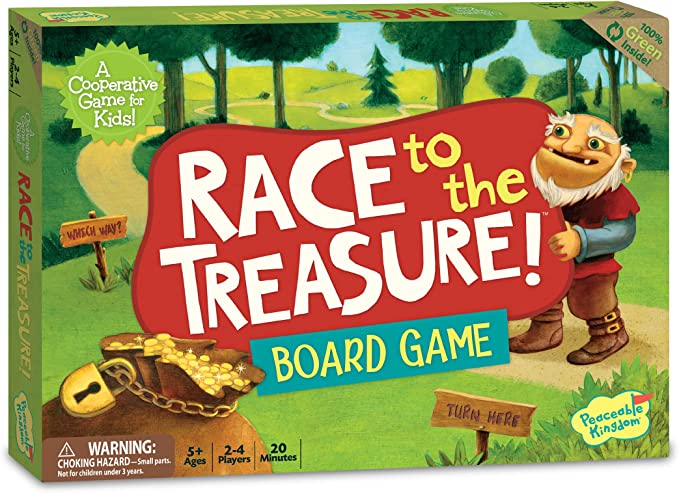Do Board Games Leave You in Tears?

Do you avoid playing board games because your children cry every time they lose?
Competitive games often create conflict between young children—who don't yet have the maturity or perspective to take losing in stride. The competition and the desire to “be the winner” can take the fun out of playing.
We've all had those days when we simply don't have the energy to teach our children about being "good losers" or repeat the age-old adage. "Sometimes you win, sometimes you lose," yet another time.
But this doesn't mean your kids have to miss out on the many developmental benefits of board games. To take the tears out of this family pastime, try cooperative board games instead.
In a cooperative game, your family works together to "beat the board." The goal is to teach children how to play together as a team, rather than sulking or fighting with their siblings when they lose. It's much easier for children to learn how to lose graciously when they're not taking the hit alone.
That's good news because cooperative board games teach children important life skills such as collaboration and turn-taking, while fostering the development of early math skills, strategic thinking, and problem-solving skills.
Want to incorporate even more learning into your cooperative game play? Add dice to the mix to promote fine-motor skills and eye-hand coordination and give preschoolers more opportunities to practice their early math skills.
Best of all, cooperative board games are suitable for family members of all ages, from toddlers to grandparents. Kids can join in at an earlier age because the older players can suggest moves and strategies. The youngest members of your family will also appreciate the opportunity to feel "old enough" to join in the fun.

Games can introduce and reinforce different math skills such as:
- Subitizing: This is the ability to recognize how many items are in a small group without counting the items. (When you roll a four, you don't need to count each pip dot to know it's a four. You just know it!)
- One-to-One Correspondence: This happens when your child learns how to move forward one space for each pip on the die. Your child rolls a four and then counts out loud as he or she moves ahead four spots.
- Number Recognition: If your child picks a card or the spinner lands on the number five, they recognize that number by sight.
Board games also help promote social/emotional development in a fun and relaxed setting. Once children begin to master a game, they will experience a surge in self-confidence and continue to enjoy the game until they are ready to move on to a more complex game. As their self-esteem grows, they will be more motivated to tackle new challenges as they arise.
See if your local library has cooperative board games available for checkout. Then plan a family game night with all of the learning, all of the fun, and NONE of the drama. Enjoy!
Here are a few of our favorites:


